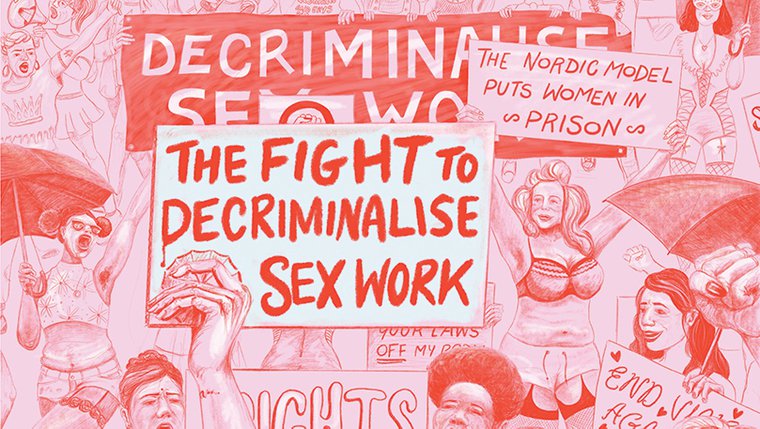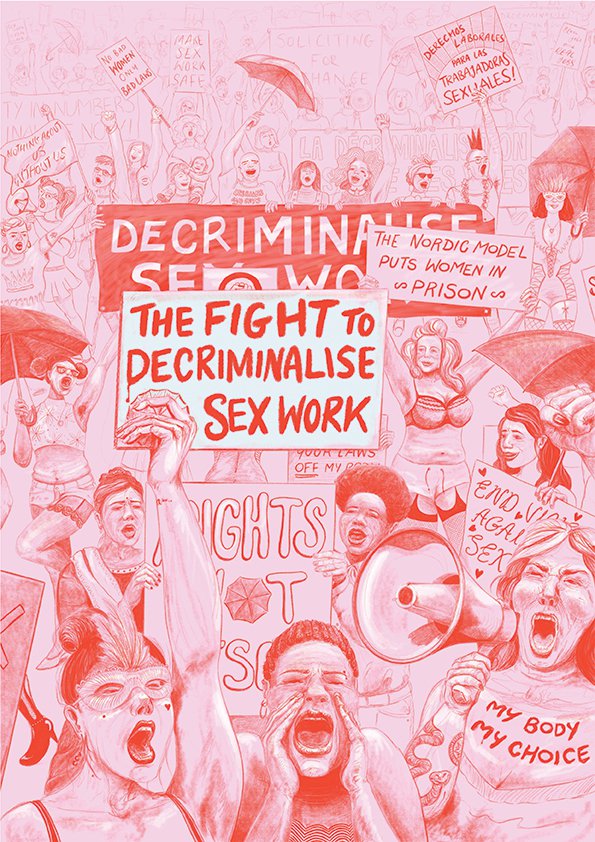OpenDemocracy: The fight to decriminalise sex work
COVID-19 threatens both the lives and livelihoods of sex workers yet governments look the other way. A new publication seeks to help sex workers get their attention.

Beyond Trafficking and Slavery released the online version of this collection on 11 January 2020 to coincide with Human Trafficking Awareness Day in the United States. We chose to situate this discussion in relation to the anti-trafficking movement because of the way that anti-trafficking interventions paradoxically enhance policing and surveillance of sex workers as a means of rescuing them.
Spanning multiple continents and disparate legal and policy environments, the authors of this volume offer a radically different view of what they believe is best for sex workers. They give insights into the best strategies for ensuring that people who sell sex are protected; evaluate the increasingly widespread ‘Nordic’ model, which allows for the sale but not purchase of sex, alongside full decriminalisation; and explain some of the ways that they defend sex workers’ interests in hostile and patronising state and civil society environments. In doing so, they remind us again and again that sex workers are fighting for their lives and that decriminalisation is absolutely mandatory to increase safety. They also remind us that organising and advocacy does not start, or end, with decriminalisation.
This book begins with vital lessons from New Zealand, where sex workers won decriminalisation in 2003. We invited sex workers and their allies around the world to share their experiences advocating for decriminalisation, as well as sought out stories from organisations that previously opposed decriminalising sex work but now find themselves supporting it. Our goal was to find what works, what doesn’t, and how it can be done better. Sex workers and migrants have been organising against exploitation and abuse for a very long time, so any conversation about different strategies should prioritise their expertise and experiences – and compensate them for their contributions.
The COVID-19 pandemic brutally demonstrates what happens to marginalised and excluded people when things start to go wrong. They die.
In the weeks that followed the launch of this online debate the world changed. In January, sex workers in Asia were reporting the impact of Coronavirus on their work. Client numbers were down, threats to their personal health and safety were ever-present, and their mobility was increasingly restricted. Asian massage workers in North America, Europe, and Australia lost much of their customer base to widespread xenophobia. The lockdowns that followed around the world sent many migrant sex workers home or forced them to endure a pandemic as undocumented migrants without a social safety net. The new regimes of quarantine, and its attendant policing, have been mobilised against migrant sex workers as a way to further police and contain their mobility. As social distancing and stay-at-home imperatives have spread across the world, sex workers have collectively experienced grave economic precarity due to loss of work. For many sex workers the situation is now desperate, and many are choosing to return to work despite the risk to their personal health.
Despite the heightened vulnerability that sex workers face under COVID-19, the vast majority of government economic relief efforts exclude sex workers on the grounds that sex work is criminalised and illegitimate. As a result, sex workers’ organisations around the world have not only set up mutual help and solidarity systems but renewed their calls for decriminalisation with an unprecedented sense of urgency. Their response is a rallying cry that must be heard.
The COVID-19 pandemic brutally demonstrates what happens to marginalised and excluded people when things start to go wrong. They die. This is why policymakers and advocates should reconsider the merits of decriminalisation, and we hope this blueprint helps continue these vital discussions in light of the urgency of this moment.
READ THE COLLECTION ONLINE
Global Alliance Against Traffic in Women

